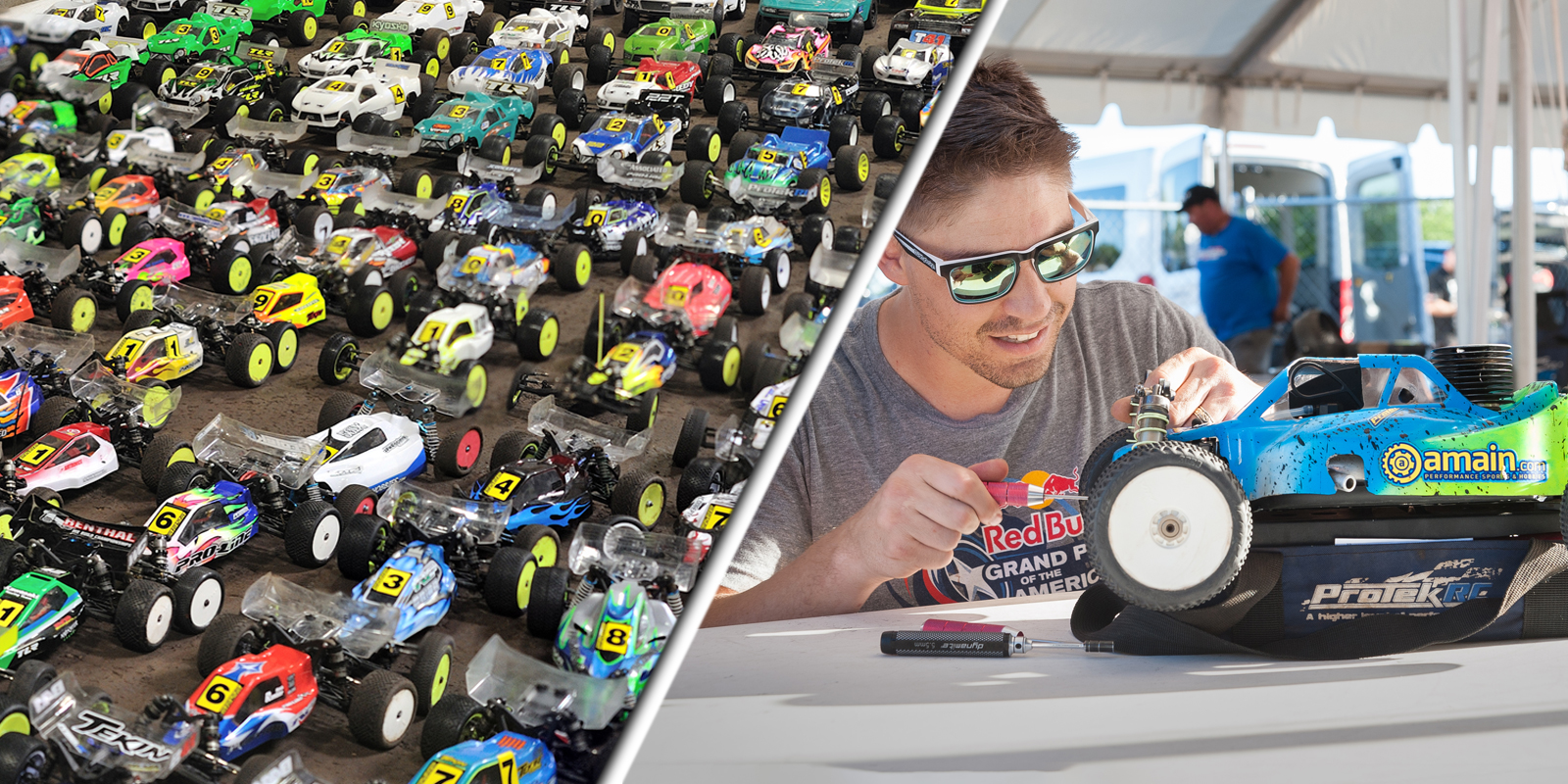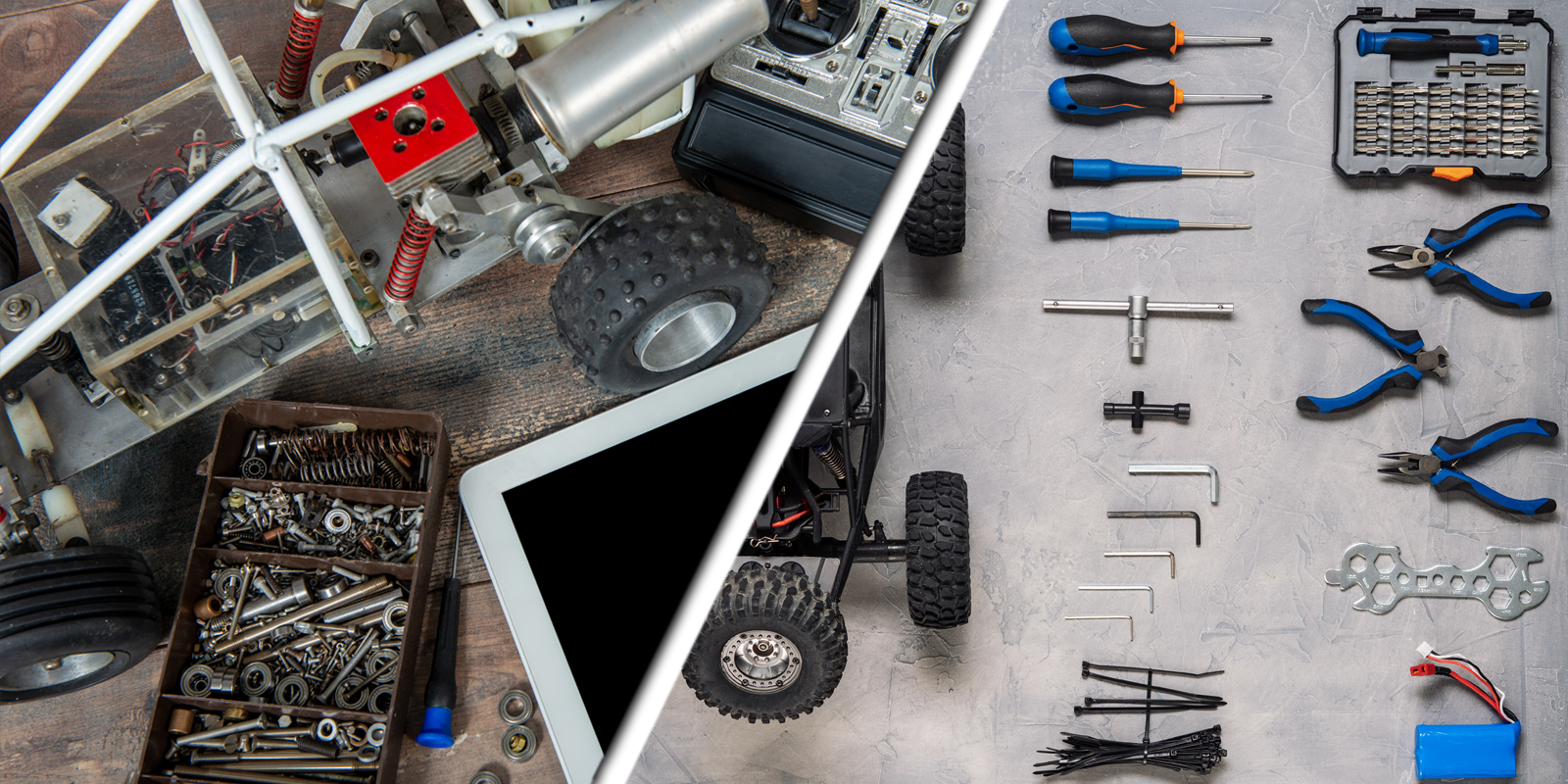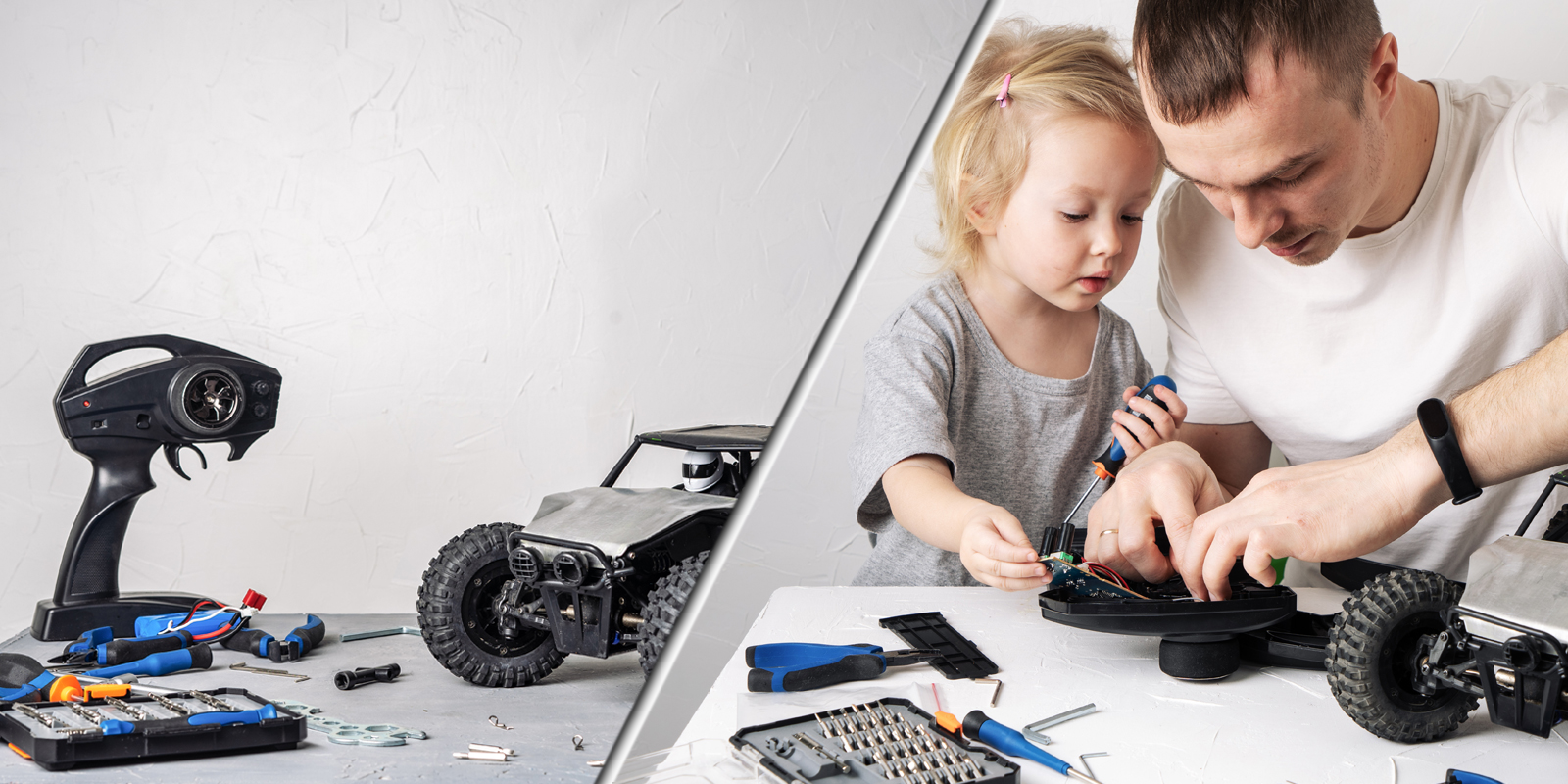Avoid R/C Burnout - 5 Simple Tips

The possibilities in the radio control hobby are wide open and up to you, making it pretty easy to overdo it. It is easy to take a path that will inevitably take you down, more than it brings you up – essentially burning you out.
Unfortunately, burnout can happen with any hobby, activity, or interest, and it can happen to anyone of any experience level. Hopefully, these tips can help you stay more aware and avoid R/C burnout.
#1 Don't Go Too Hard, Too Fast
Getting too many radio control vehicles at first is common with beginners who go headfirst into the hobby, picking up one vehicle, then another, and maybe another. And all these vehicles need batteries, and chargers, extra parts, body clips, screws, wheel nuts, tire glue, and wow, before you know it, you've accumulated a lot of stuff, really fast, and it all has to go somewhere, filling up your hobby room or garage. So, in the end, you have tons of stuff, little space to work on it, and over time—less and less energy to tackle it.
On top of that, with too many cars, it's easy to procrastinate on repairs. Because you always have another one to play that works. But, eventually, those break too, leaving you with an arsenal of R/C models that don't drive and all need work, which can be a real demotivator.

Going too hard too soon is also common in competitive R/C'ing, where a racer starts racing with one vehicle in one racing class but very quickly starts getting a race car for every race class so that they can race them all. This attitude and drive are temporary and will put you on the fast track to being burnt out.
The best thing to do in the hobby, for racing, crawling, bashing, or anything else, is to take your time and learn everything you can about your model and how it works inside and out. Then, maybe try out new tires, make some upgrades, experiment with suspension tuning, or learn to airbrush a new body.
Whatever the case, when you get creative, you can do a lot with very little, like turning a Slash into a Monster Slash by just changing the tires and raising the body. It's not too expensive, easy to accomplish, and requires very little to transform the truck. That's just one example, but an excellent way to get to know your RC a little better and stay motivated to progress.
#2 Create Reasonable Goals & Expectations
So, you want a nitro, a drag car, a monster truck, a tank, huh? Sounds easy, right? You might not feel that way after 12 months have passed and you bought everything you think you'll need, but you still have a table full of parts that you haven't even touched in two months because the task seems too daunting. So, you avoid it, and instead of feeling joy, you feel dread, and in the end, disappointed. You box up "THE PROJECT" and put it in the garage so that you can finish it "one day."
What if you're ready to be the next world champion R/C racer? You buy all the right gear and put in your time at the track, yet you do not see the expected results after a year of racing. That won't be very reassuring for anyone who has set their goals and expectations too high. World champion level driving requires a decade of training, not 12 months.

Giving yourself significant daunting goals is a quick way to accomplish very little. Instead, if you give yourself small bite-sized goals that you can achieve, you'll feel more accomplished and more confident in the hobby as you progress with small steps.
There is another component here that's related, and it's the need for perfection, in a build, or paint or whatever. Again, this ties into having expectations, which is great to have high expectations and challenge yourself to get better and improve, but ultimately wanting perfection or expecting it will only drain you down because you'll never get it.
#3 Don't Treat the Hobby Like a Job
The nice thing about having a hobby is you can do it when you want, without any obligation or commitment; no one is giving you work to complete, there are no bosses, there are no deadlines; it's just you are doing what you want. In contrast, when you turn your hobby into a job or treat it like a job, you're most likely giving yourself duties and tasks to complete, along with a deadline. When it feels like you HAVE to do these things, it's work, not a hobby.

We've seen this often with online R/C influencers who hit it hard, to begin with and fizzle out a year later. Or R/C racers who take on sponsorships only to feel the pressure on them to win, with little regard to having fun.
But to be fair, some people like that pressure, which leads us to...
#4 Identify Your Joy vs. Drain
We all find happiness in this hobby in different ways, which is why it's crucial to spend a little time thinking about what in this hobby brings you joy? What in this hobby drains you? Those answers will help you pick and choose the activities in the radio control hobby that charge your batteries. Charging your energy back up after real life has drained you down is why we have hobbies in the first place!
So, after you've been in the R/C hobby for some time, it's good to take an inventory of what you love and what you don't. I like to do this every few years because as you change and grow, so do your interests.

Most of what you like and don't in the hobby are fairly obvious to you, but some other less discussed areas would be:
- Your hobby space is important. How does your environment look? Where do you wrench and store your hobby? Is it nice, clean, and inviting? Or is it a disaster you avoid every time you walk past it? Don't let this space drain you. It's best if you take control of your R/C space.
- Wrenching is another big area that ties into the workspace. Do you enjoy wrenching in a clean workspace? Wrenching is a huge drain for some people, while it's a huge charge for others. There is no right or wrong here, but if you do not like wrenching, try to avoid the activities that require it, like buying a kit.
If you can, delegate work to other people or see if your local hobby shop can help. "I don't like painting R/C bodies, for instance, so when I can, I have someone else do it, or I buy a pre-painted body if it's available."
- Traveling for your hobby. It could mean hanging out with friends for an event or big race. But, depending on the type of person you are, you love traveling or hate it.
- Other people in your R/C group. Not all people are healthy for us, even if they share the same hobby. Be sure to R/C with people who charge your pack, not drain it.
#5 Don't R/C Alone
There is nothing better than sharing what you love with people who love it too. Sharing is why R/C events and races are so popular because people from all walks of life come together for the hobby they love.
There are R/C communities and clubs worldwide going out and doing R/C together. You can find most of them on Facebook. You just need to search in your local area or talk to the local hobby shop.

Sharing R/C is even easier when you take out buddies, your family, or your kids. It's a great way to learn skills and build confidence, not to mention all the cool people you'll meet, the friends you create, and the bonds you share, all because of the radio control hobby.
Remember, the RC hobby is a journey, not a destination, and with the right people by your side, who knows where it will take you.
